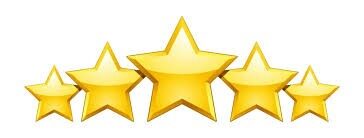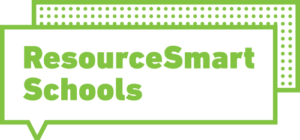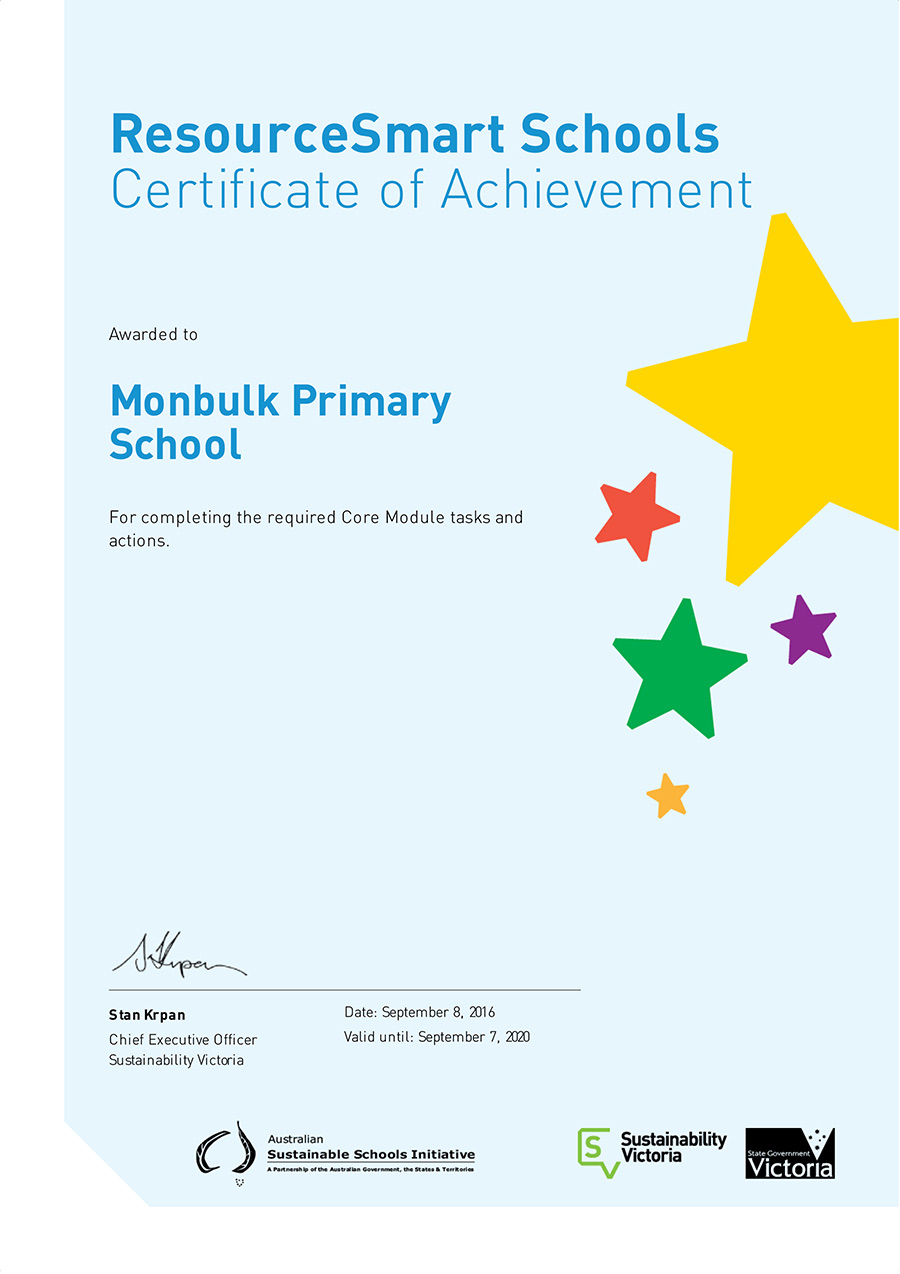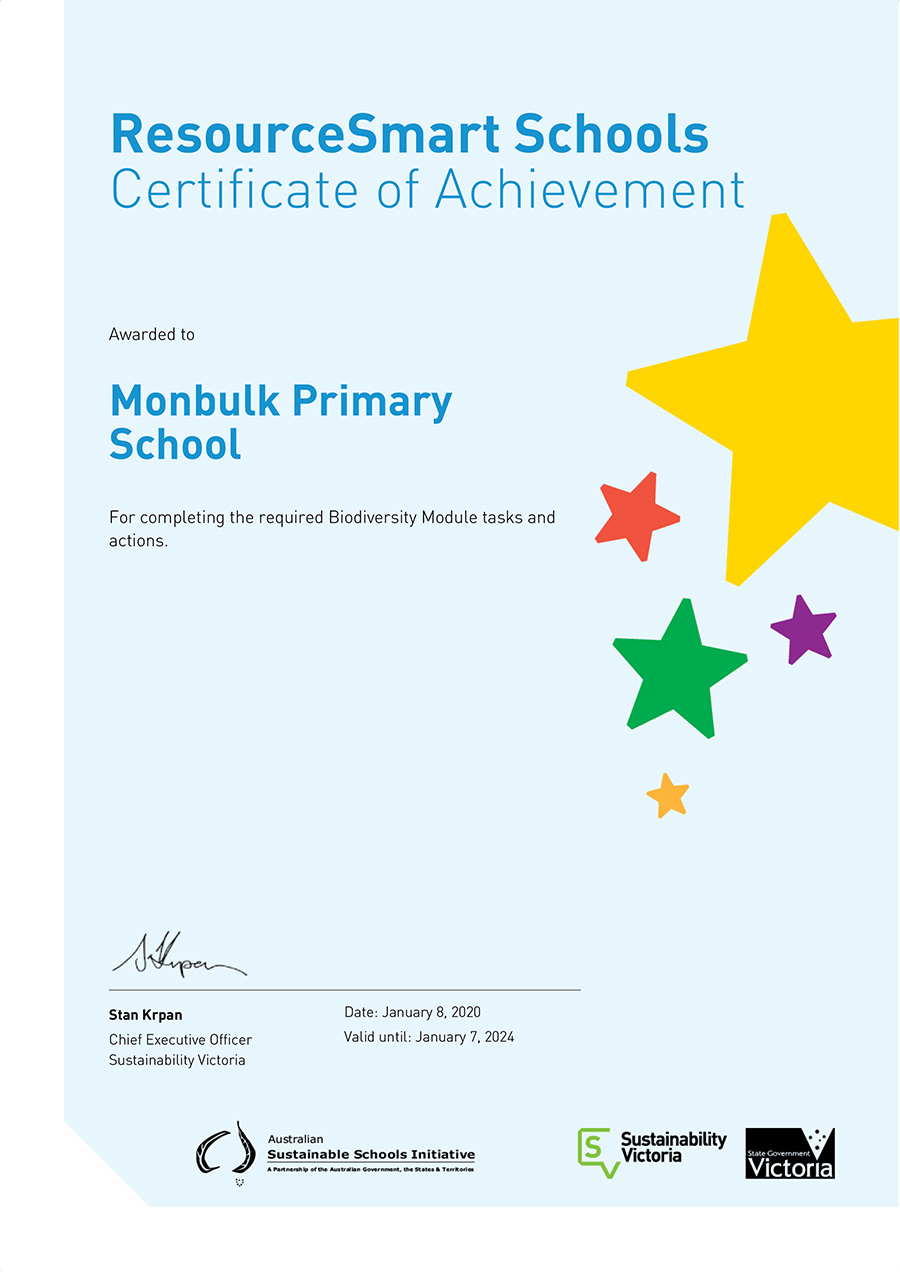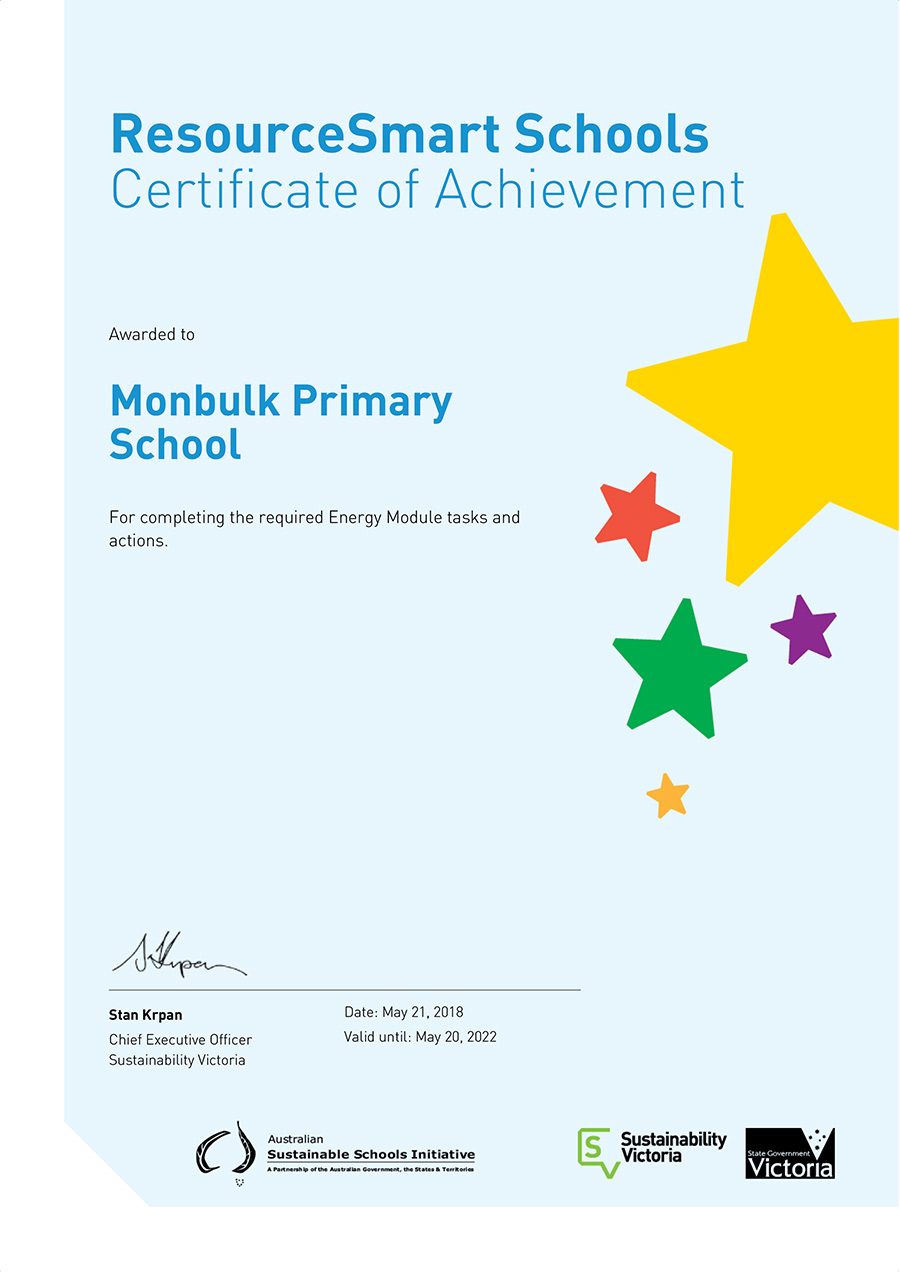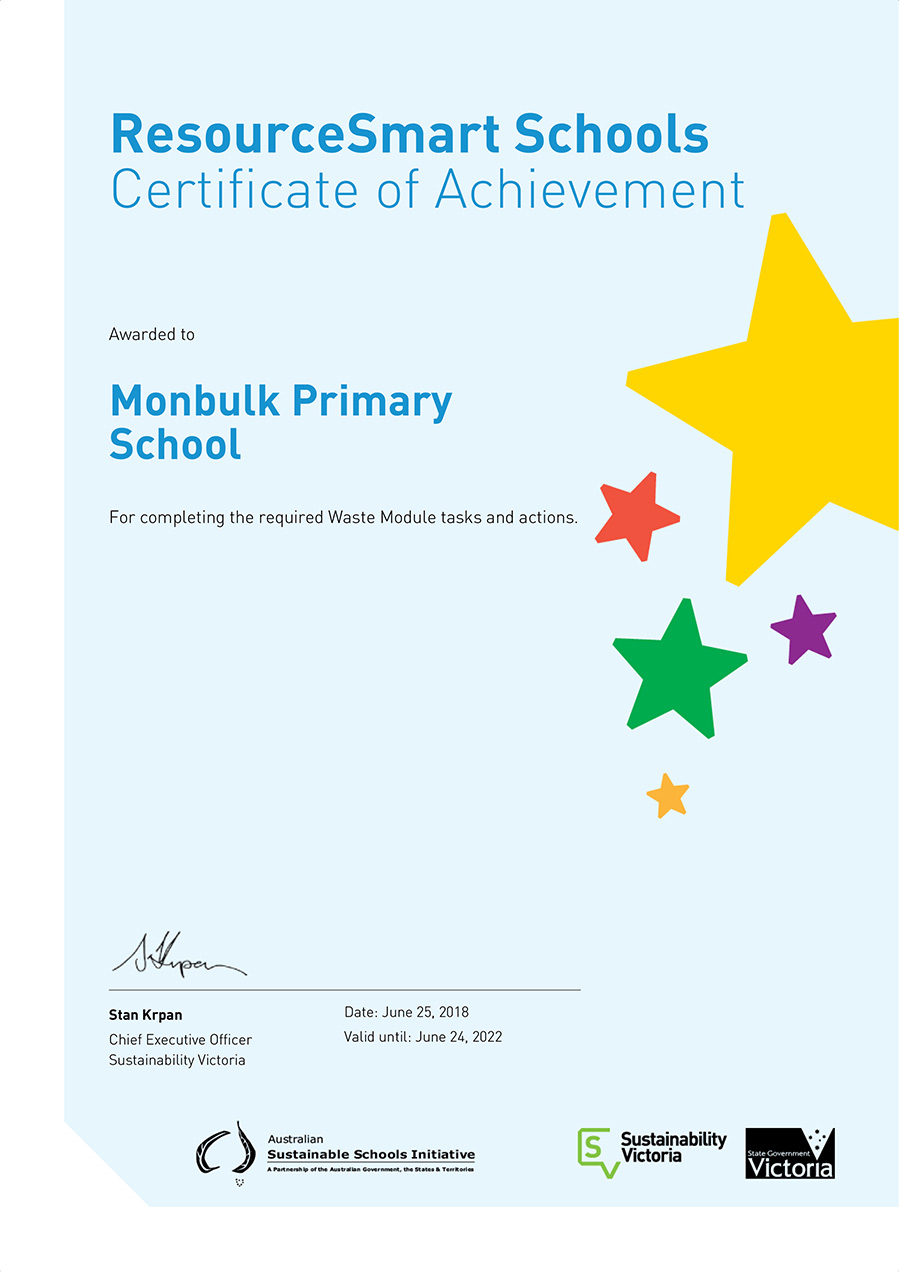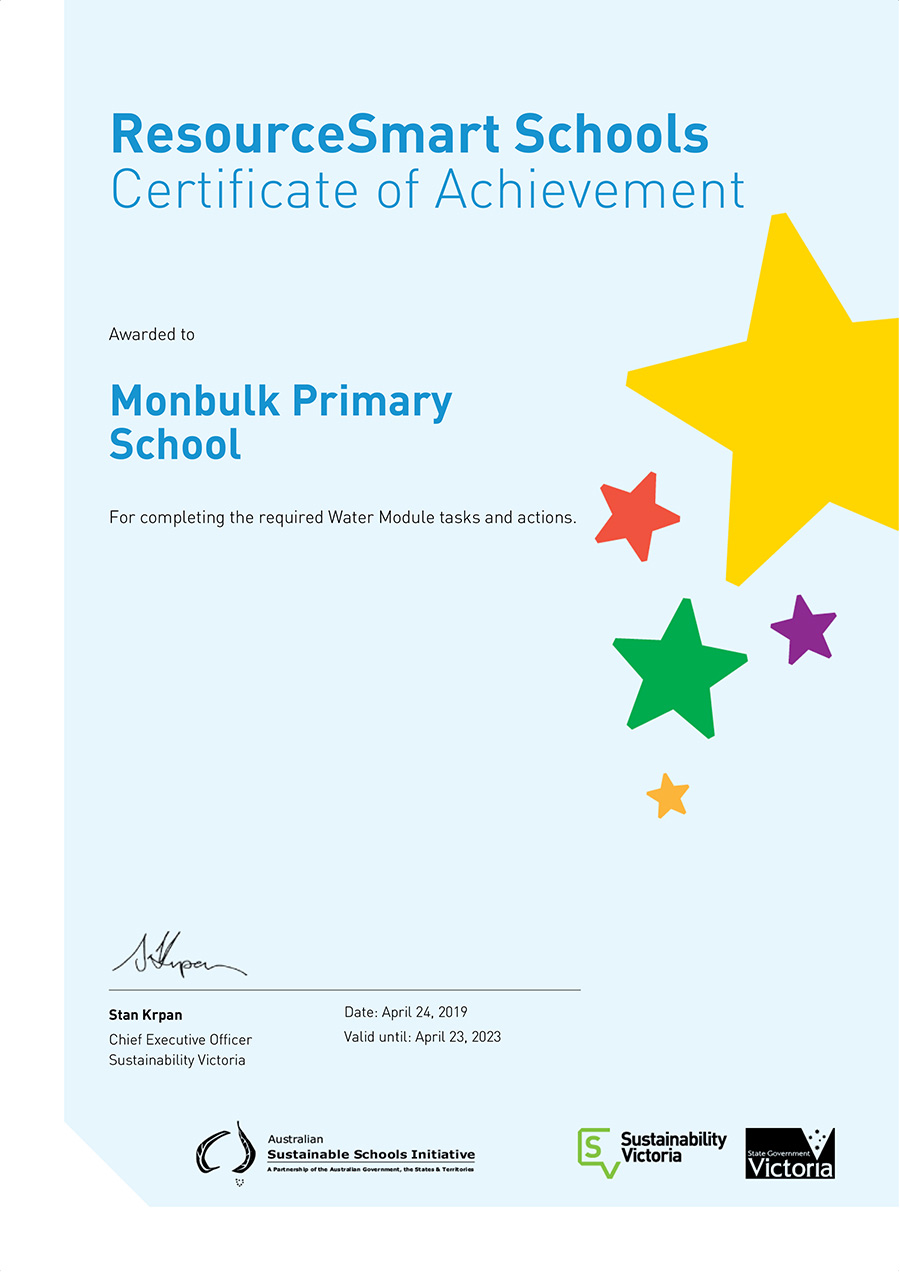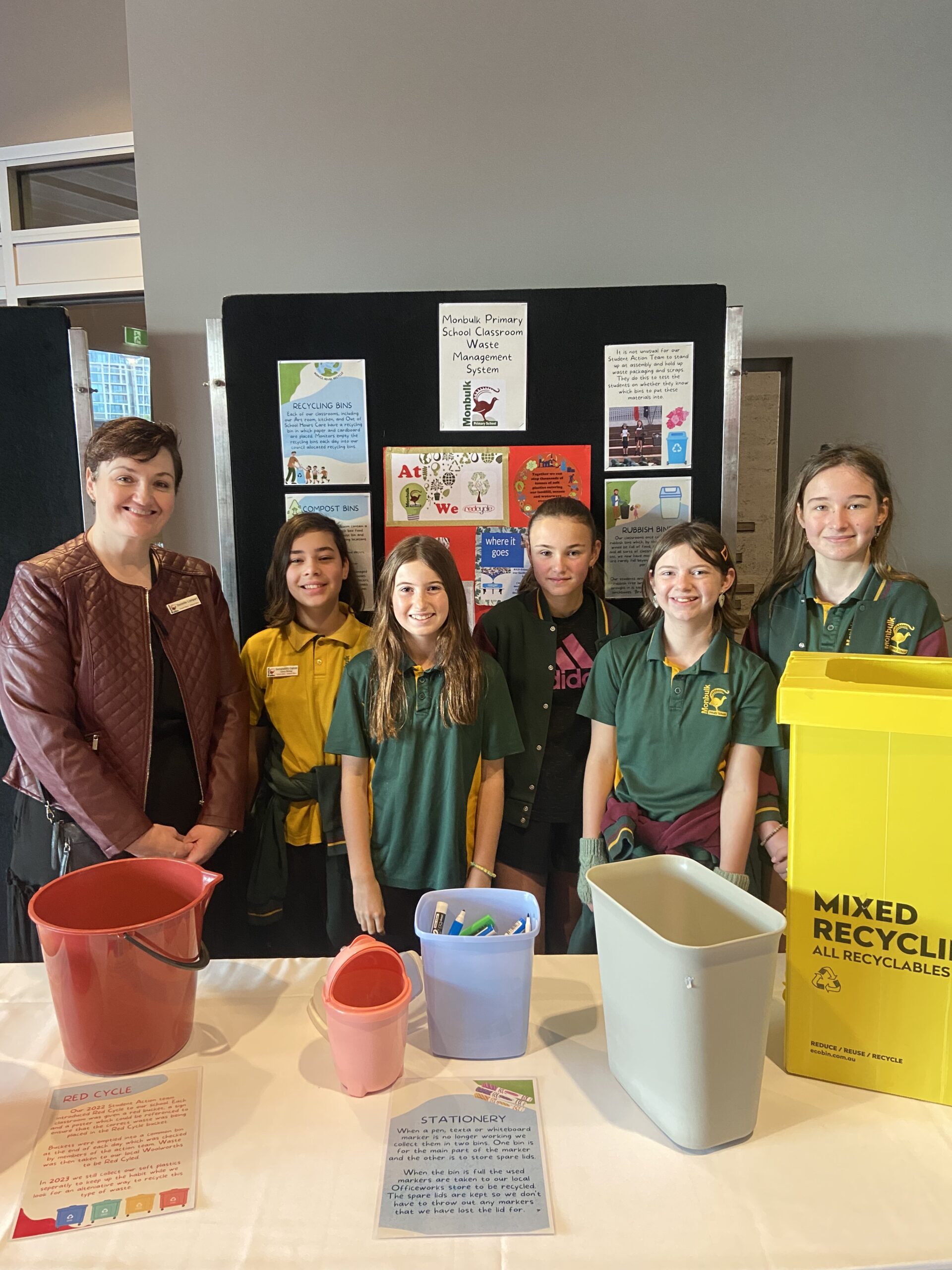Each year level in Monbulk Primary School undertakes a Sustainability-related unit of work in Term 1 of every year. The units last a whole term and students are often required to make a presentation on what they have learnt at the conclusion of the unit. The Sustainability units for Monbulk Primary are taught on a two-year rotation and are as follows:
Foundation (Prep): Weather
Students study the changes which occur in the sky and in the landscape as well as the seasonal changes which occur throughout the year. Students study the changes in daily weather and how we modify our behaviour to suit these conditions. Finally, lessons focus on the affect changes in weather have on animals in the wild, such as hibernation, and the affect on our domestic pets.
Grade 1/2: Plastic in our environment/Saving Water
Students understand that objects are made of materials that have observable properties. Students complete observations and hands-on activities where they sort and group materials based on colour, texture and flexibility. Students compare materials used for clothing and explore how suitable certain materials are for building.
Students explore how water, as a resource, is used and how it can be conserved. Students spend time identifying the Earth’s resources such as water, soil and minerals and describe how they use them in their everyday home and at school. Students consider what might happen if a resource such as water was not so readily available. Next, students identify actions we can take, as a school, to conserve water.
Grade 3/4: War on Waste /Renewable Energies
Students learn about the Earth’s surface and how it changes over time as a result of natural processes and human activity. They investigate the use and management of natural resources and waste, and different views on how to do this sustainably. Students develop awareness and understanding of the effects of people’s interactions with their environment and the ways in which this can impact their lives. They learn about the different groups in the community and their responsibilities in caring for the local environment, and the ways individuals, families, groups and communities can work together to care for and improve their environment.
Grade 5/6: Natural Disasters /Reef Warriors
Students recognise the influence of environment on the human characteristics of a place, and how scientific knowledge is used to inform personal and community decisions. They learn that sudden geological changes or extreme weather conditions can affect the Earth’s surface and important resources. Students explore and conduct inquiries regarding the impact of bushfires, floods and other natural disasters on environments, communities and natural resources, and the impact human populations have on the oceans. Finally, students examine ways in which we can reduce our impact on various environments, particularly our oceans.
These units all have links to the Victorian Curriculum, including but not limited to:
- Earth and Space Sciences;
- Geography;
- Science Inquiry Skills;
- Ethical Capability.


